Five projects win in 2021 AIA Regional & Urban Design Awards
By Alexander Walter|
Friday, Apr 9, 2021
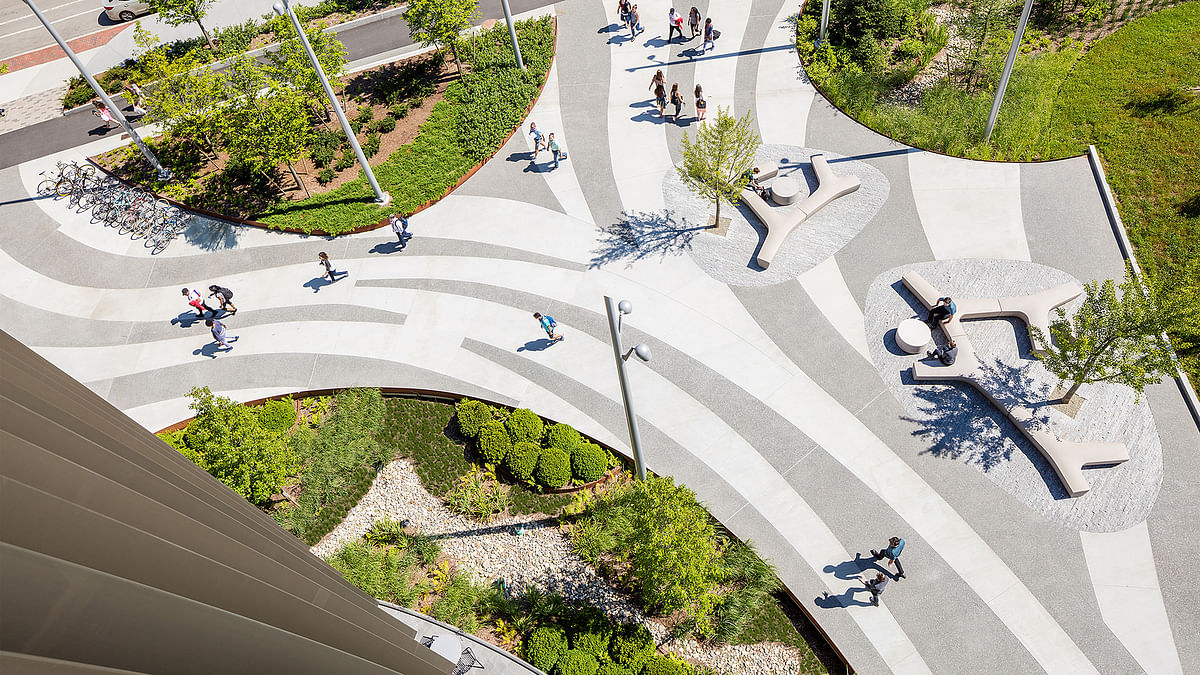
Related
Five projects from across the United States have been announced as the AIA's 2021 Regional & Urban Design Award winners. The program aims to highlight the best in urban design, regional and city planning, and community development.
Boston-based firm Payette managed to win two trophies this year for their Northeastern University Interdisciplinary Science and Engineering Complex in Boston as well as urban interventions in Lynn, Massachusetts.
Read on for a glimpse of the winning projects.
Beyond Walls, Lynn, MA
Payette

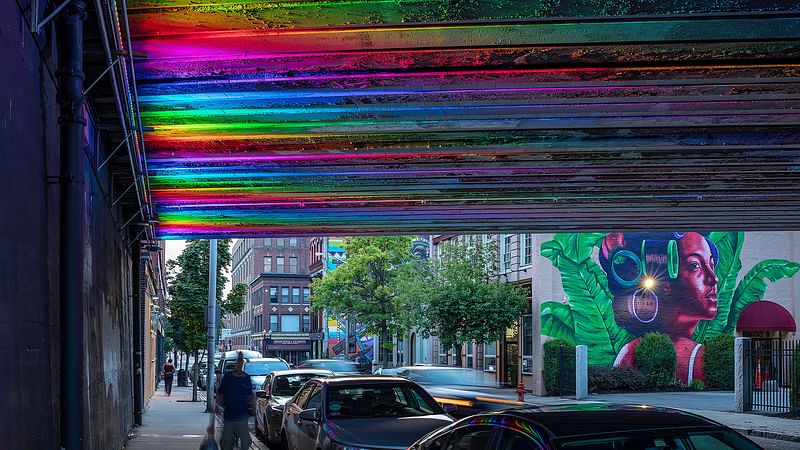
Project excerpt: "Exploring how designers can activate connection through multiple interventions in the built environment, this project, a pro-bono effort, rallied the citizens of Lynn, Massachusetts, around art as a vital source of public engagement and civic improvement. To realize this, the team partnered with Beyond Walls, a collection of engaged citizens, to develop five distinct interventions. The emergence of COVID-19 prompted the two most recent, but all together they have significantly strengthened the connection between Lynn’s citizens and their physical environment while providing the corollary effects of enhanced safety and walkability." ~ Read more about this project here.
Essex Crossing, New York, NY
SHoP Architects
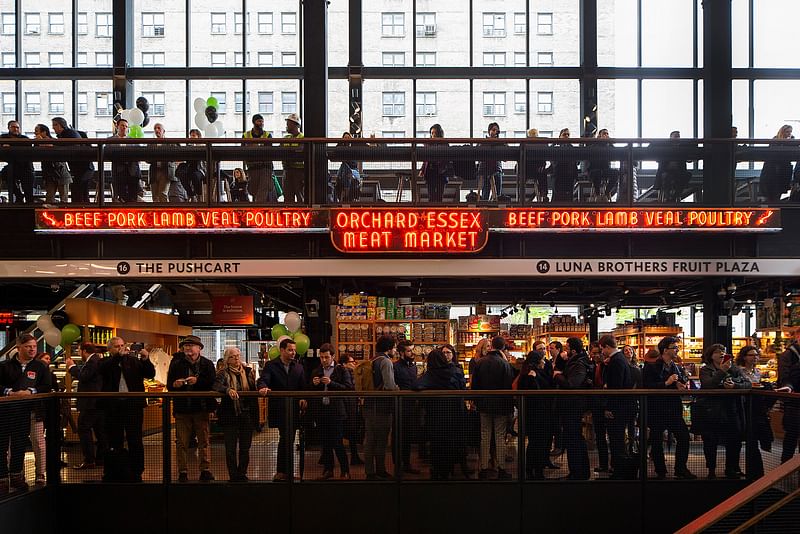
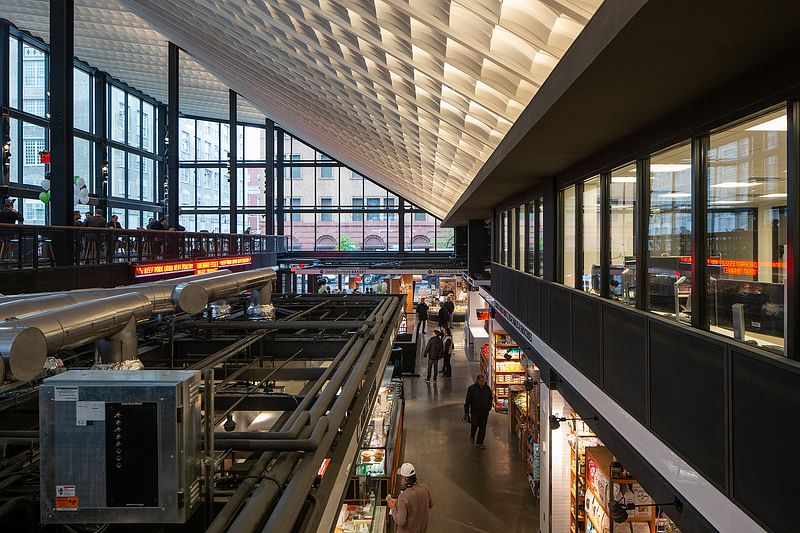
Project excerpt: "Across 20 acres of land formerly owned by the city, SHoP and Beyer Blinder Belle's collaborative team has created a dynamic but respectful
contribution to life in New York's Lower East Side. Fueled by a vision
that orchestrates development at nine prominent and long-empty sites,
this plan includes more than 2 million square feet of commercial,
retail, and community-use space that will maintain the vitality of this
historic, bustling neighborhood. [...] In 2013, the team was selected through a public RFP process initiated by the city, joining three well-known developers to craft a plan for the largest piece of undeveloped land south of 96th Street. Fifty percent of the plan's residential spaces are designated as permanent affordable housing, prioritizing those relocated during the 1950s and ’60s." ~ Read more about this project here.
Haxtun - Saving Main Street, Haxtun, CO
HDR
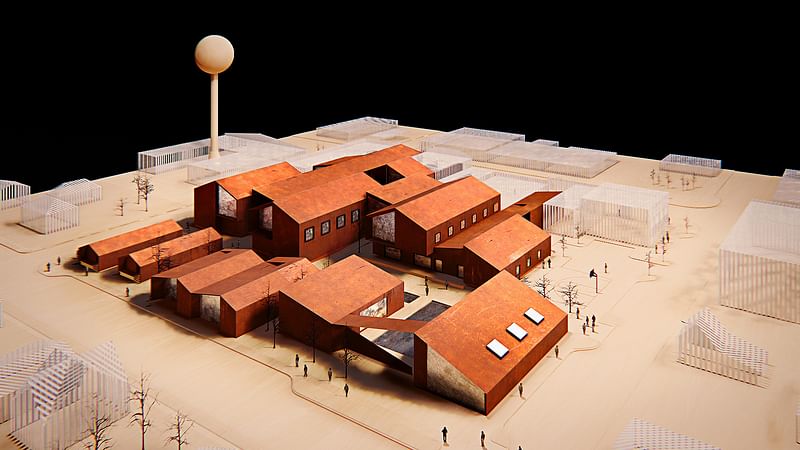
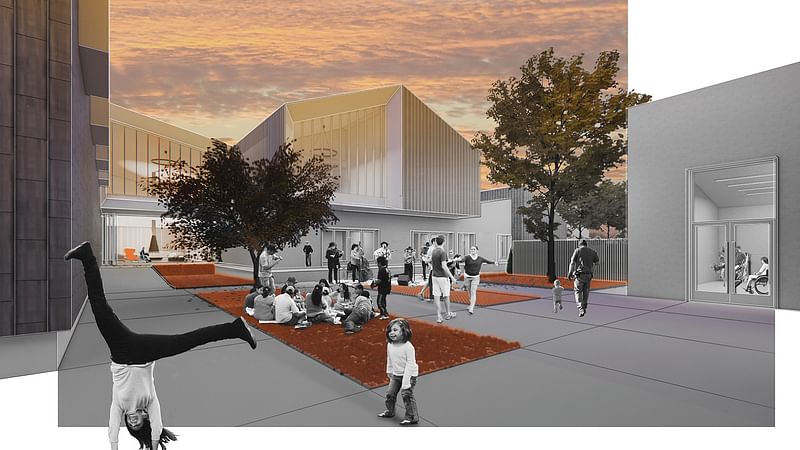
Project excerpt: "Like in many other small communities throughout America, the local health system and its medical centers are one of the largest single employers in Haxtun, Colorado. Haxtun’s population is just 1,000, and the Haxtun Hospital District employs more than 120 and welcomes an additional 20 or so volunteers. This plan explores what could happen if that working population is redirected to occupy Haxtun's existing main street storefronts and buildings. What the team has envisioned can not only save Haxtun, but countless rural communities across the country whose hospitals are threatened with closure. The plan seeks to redistribute the population density across the center of the community in order to support these often-overlooked places and their medical centers. In Haxtun, the team conceptualized its ideas across a 3.3-acre site, roughly the size of one city block. It calls for a mix of nearly 20,000 square feet of adaptive reuse and more than 50,000 square feet of new construction to achieve a focused population gravity." ~ Read more about this project here.
Northeastern University Interdisciplinary Science and Engineering Complex, Boston, MA
Payette
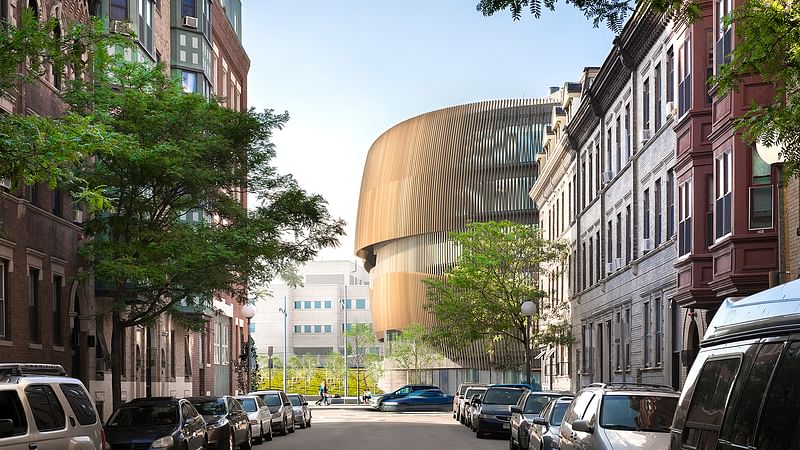
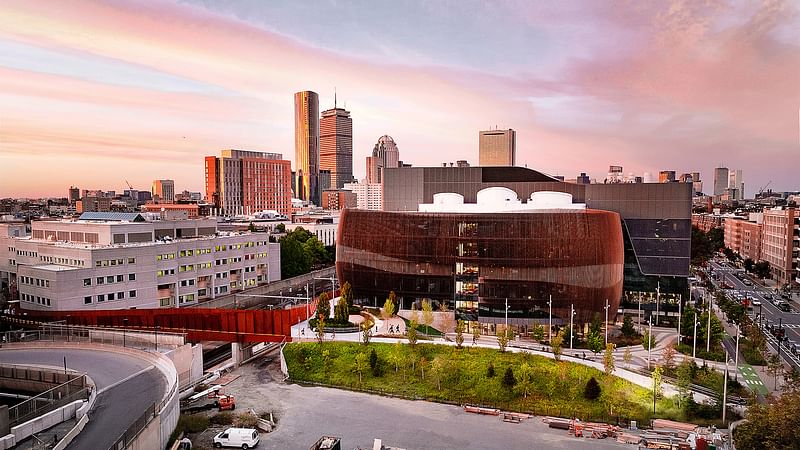
Project excerpt: "Flow and movement are the defining features of this new academic precinct straddling Boston’s Roxbury and Fenway neighborhoods. This cutting-edge hub for the sciences has helped position Northeastern University as a premier destination for research, but it also serves as a vital social space for students. Built on a brownfield, this new academic building, referred to as ISEC, and its accompanying pedestrian bridge is the first major project informed by the university’s institutional master plan. The complex sits south of one of the city’s primary rail corridors, serving as a literal bridge between two diverse neighborhoods and a symbol of the school’s desire to strengthen the communities surrounding it. The new pedestrian bridge, playfully known as PedX, and its surrounding landscape provide an accessible walkway up and over the tracks where the Massachusetts Bay Transportation Authority and Amtrak provide service. Pedestrians are greeted with a gentle slope, shielding any views of the rail corridor, which eventually leads them to the 500-foot, free-form bridge that connects directly to the new building." ~ Read more about this project here.
Rebuilding a Local Food Economy: Oahu, Hawai'i, Oahu Island, HI
University of Arkansas Community Design Center

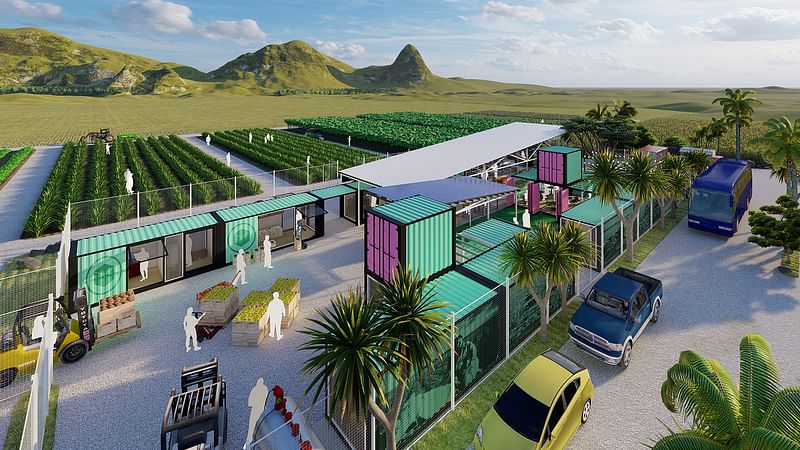
Project excerpt: "Despite being the most inhabited remote landmass in the world, Hawaii imports more than 93% of its food. This plan aims to rebuild the local food systems on Oahu, the third largest of the Hawaiian Islands and home to nearly one million people. Working closely with the state's department of agriculture, a diverse team of architects, urban designers, farmers, landscape architects, and food scientists embraced the idea of "thinking like an island" to create an innovative platform for developing value-added short food supply chains on Oahu. While food planning is often viewed as a rural issue and is conspicuously absent in American planning and policy, food access is intrinsically linked to problems and health issues found in urban settings. Before the rise of industrial agriculture, local food processing and distribution centers were plentiful in American cities, ensuring both essential nutrition and farm prosperity. With food hubs, markets, and processors now absent, our cities have become less resilient and prone to significant nutritional deficits." ~ Read more about this project here.

RELATED NEWS AIA distinguishes four projects in 2020 Regional & Urban Design Awards

RELATED NEWS Four projects win in 2019 AIA Institute Honor Awards for Regional and Urban Design


Share
0 Comments
Comment as :